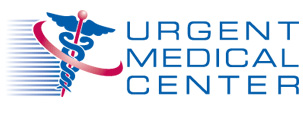 If you experience routine heartburn you might suffer from Gastroesophageal Reflux Disease, also known as GERD. GERD is a digestive disorder that impacts the ring muscle located in between your stomach and esophagus, know as your lower esophageal sphincter.
If you experience routine heartburn you might suffer from Gastroesophageal Reflux Disease, also known as GERD. GERD is a digestive disorder that impacts the ring muscle located in between your stomach and esophagus, know as your lower esophageal sphincter.
Just as its name suggests, gastroesophageal reflux allows the contents of your stomach to flow back up into your esophagus. Ideally, the lower esophageal sphincter (LES) only opens in order to allow food to pass through and enter the stomach. It then closes in order to prevent food, as well as stomach acids, from traveling back up.
If you suffer from GERD, your LES is weak or malfunctioning, opening up when it shouldn’t. When the contents of your stomach splash back up, the acidic quality sparks the side effects of heartburn. This acid can also have damaging effects on your esophagus lining.
Symptoms of Gastroesophageal Reflux Disease
The most common symptoms associated with GERD:
- A feeling or sensation that food is literally trapped behind your breastbone
- Heartburn
- Feeling nauseas after eating
Other symptoms of GERD that tend to be less common include:
- Regurgitating food
- Coughing or wheezing
- Frequently getting the hiccups
- A change in voice, typically hoarseness
- Sore throat
- Troubles swallowing food
For some people symptoms worsen at night, while lying down, or after eating.
What Causes GERD?
Generally, diet is a big factor in the development of gastro reflux disease. Other risk factors associated with the development of GERD include:
- Pregnancy
- Obesity
- Smoking
- Scleroderma
- Hiatal Hernia, some doctors hypothesize that hiatal hernia may cause GERD, since this would weaken the LES. A hiatal hernia is when the upper portion of the stomach escapes up through an opening in the diaphragm, the muscle separating the chest and abdomen. This allows the contents of your stomach to easily move back up into the esophagus. Not everyone with hiatal hernia experiences symptoms related to heartburn.
- Certain medications, including anticholinergics, beta-blockers, bronchodilators, calcium channel blockers, dopamine-active drugs, progestin, sedatives, and tricyclic antidepressants
How To Diagnoses Gastroesophageal Reflux Disease
Mild cases of GERD do not typically require any tests or treatments, but instead can be modified through diet and lifestyle changes. If your symptoms are severe and do not change with diet and lifestyle modifications you may need to undergo a test known as an upper endoscopy.
An upper endoscopy test includes inserting a small camera down your throat to further examine your esophagus lining. The esophagus is the tube that connects your throat, stomach, and the first part of your small intestine.
From here, there are a few different tests doctors use to determine the severity of GERD. A doctor can measure the amount of stomach acid present in your esophagus, as well as the amount of pressure inside the lower region of the esophagus. Thirdly, a stool occult blood test can help determine if blood is reaching your stools due to irritation and bleeding of the esophagus, stomach, or intestines.
Treatment Options For GERD
In most cases lifestyle changes, especially in regards to diet, can have a profound impact on symptoms related to gastroesophageal reflux disease.
To relieve associated pain and discomfort you can take over the counter antacids, although there are long-term as well as short-term side effects of taking heartburn medications regularly.
Other medications are available, both over the counter and by prescription. Such as proton pump inhibitors (PPIs), which reduce the level of acid your stomach produces. Also, H2 blockers can be helpful by decreasing the acid your stomach releases.
Tylenol can also be effective, but avoid aspirin, ibuprofen, and naproxen.
In very severe cases anti-reflux surgery may be a viable option, but usually only if life-style changes do nothing to cease the disorder. Surgery usually improves heartburn and other related symptoms, but some patients still require medications after surgery.
Talk to a doctor to find out which treatment methods are the best for your particular case.
What Happens If You Ignore Gastroesophageal Reflux Disease?
If you routinely experience heartburn related to GERD it’s important to get medical attention in order to prevent a worsening of the problem. Potential complications associated with gastroesophageal reflux disease include:
- Worsening of asthma
- Esophagus cancer
- Bronchospasm (acid irritation leads to spasms of the airways)
- Chronic cough
- Hoarse voice
- Dental complications
- Formation of an ulcer in the esophagus
- Stricture (scarring from constant irritation leads to a narrowing of the esophagus)
Visit a doctor as soon as possible if you experience:
- Worsening of symptoms, or inability to cease heartburn with lifestyle changes
- Loss of appetite, weight loss
- Coughing or feeling short of breath
- Vomiting
- Painful or difficult to swallow
Don’t let heartburn control your life! Contact Florida’s leading Urgent Medical Center today.




